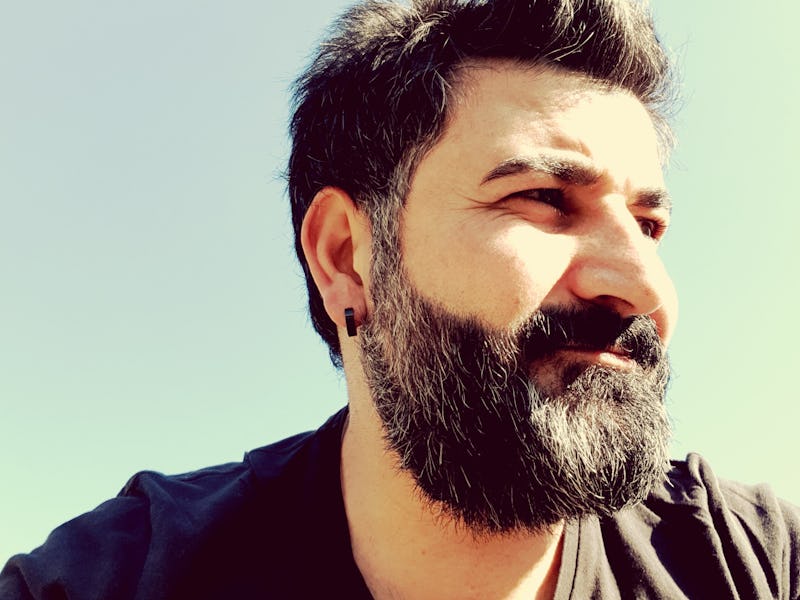Having a mentally restorative vacation comes down to 2 factors
How to benefit — and escape the guilt of taking time off.

With many people tethered to their phones, technology has made it harder than ever to relax and recharge.
The culture of making “every minute count” has left a growing number of people and workers exhausted and burned out.
One antidote to the culture of overwork is simple: log off. Research shows leisure time out of the office actually boosts performance and mental well-being inside the office.
“Vacation days are not only important for preventing burnout, but it is possible that taking time away from the immediate demands from work allows the mind to wander in a way that can enhance creative thinking about one’s job,” Adam Waytz, a psychologist at Northwestern University's Kellogg School of Management, tells Inverse.
“In addition, taking time off can boost feelings of autonomy, which increases motivation and job satisfaction.”
However, taking vacation time or unplugging during off-hours is often easier said than done. This week, Strategy explores:
- How to benefit from truly restorative leisure time
- Escape the guilt that sometimes comes from doing nothing.
I’m Ali Pattillo and this is Strategy, a series packed with actionable tips to help you make the most out of your life, career, and finances.
Time’s up — Stress levels in America have hit record highs in recent years, reaching a fever pitch in recent months amid the Covid-19 pandemic and widespread civil unrest linked to police brutality. The pandemic has "obliterated" work-life balance, causing employees to work hours longer and making it near impossible to disconnect from work.
The stress of modern life can jeopardize mental and physical health, fueling anxiety, depression, and the development of chronic diseases like heart disease and cancer. Chronic stress can actually restructure certain brain cells and age people on a cellular level.
This workaholic culture -- and resulting health consequences -- have been associated with society’s tendency to overly associate work and identity.
“When people overly identify with their work, they think any leisure activity has to be in part for the benefit of productivity,” Waytz explains. “This leads to common practices of answering email off-hours or on vacation, but also small things like listening to podcasts and reading books insofar as they are related to work.”
Technology can be a double-edged sword, providing opportunities for work and distraction.
“Technology can contribute to this problem because it enables people to be ‘always online’ even when they are out of office, but also technology offers many opportunities to disengage as well through games, apps, or simply mindless internet activity,” Waytz explains.
Vacationland — Taking leisure time -- whether it’s a day off, long weekend, or weeks-long vacation — is crucial to disrupting chronic stress.
A 2006 Ernst & Young internal study showed that for each additional 10 hours of vacation time employees took, their year-end performance improved by eight percent.
But doing this isn’t always simple.
It is human nature to maximize the rewards of life and minimize idleness — a psychological phenomenon called “idleness aversion.”
“Idleness aversion means that given the choice between remaining idle and doing something to keep ourselves busy, we will choose busyness if we are given only the slightest justification for staying busy,” Waytz explains.
At the end of the day, it can be hard to remind yourself that vacation and non-productive time is useful. But Waytz emphasizes that productivity can actually come by disengaging from our work.
“People need to be comfortable with the idea that busyness is not the same as productivity.”
One frequently company-driven initiative to improving employees mental health are happy hours, retreats, or so-called “mandatory fun.”
But Waytz says office get-togethers are not the answer.
“Force people to go home and get off the clock,” Waytz says. “Nap rooms, ping pong tables, free snack kitchens at work do not enable people to disconnect. They keep people at work under the illusion they are engaging in leisure.”
Some companies are experimenting with this strategy, offering stipends for employees to take vacation or making vacation days mandatory. Others are instituting six-hour work days or four-day work weeks based on data showing these shifts can make employees happier and more productive.
Ultimately, taking time off isn’t always within people’s control. But disconnecting regularly, if you can, will help people create a sustainable work-life balance and avoid burning out.
What to do during off-hours
- Nothing! Research shows seemingly pointless or playful activities can improve creativity, problem-solving, and happiness.
- Hit the court: Studies show playing sports can turn down your neural static and, essentially, quiet your brain.
- Travel: People who explore new places, learn new languages, and experience new things as they age are less likely to develop cognitive decay.
This article was originally published on